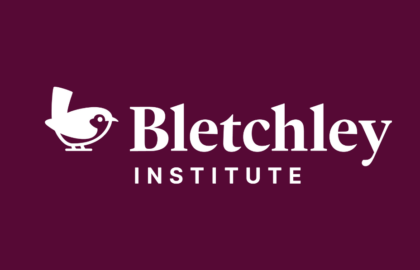This Instructor Teaches Data Science and Empathy to Students

At Flatiron School, our instructors are at the heart of what we do. Fangfang L. joined Flatiron School at our flagship NYC campus at the end of 2018 to help launch our first immersive Data Science program. People like Fangfang, who combine experience with passion, are exemplars of why our instructors are so strong. Fangfang has a […]
At Flatiron School, our instructors are at the heart of what we do. Fangfang L. joined Flatiron School at our flagship NYC campus at the end of 2018 to help launch our first immersive Data Science program. People like Fangfang, who combine experience with passion, are exemplars of why our instructors are so strong.

Fangfang has a history of leading others on a life-changing educational journey — an experience that she knew firsthand. Born in Taiwan and raised in China, Fangfang taught herself English when she was 15 years old. Just a few years later, she began teaching English to others as a student at New York University. She explains that, for her, teaching is about sharing her passion and empathizing with the challenges of learning something new.
Her data science journey started with philosophy. She was studying the subject in college and enjoyed solving problems both analytically and critically. She wasn’t sure what she wanted to study in grad school, and after some debate, she chose to get a master’s degree in quantitative social science, or social statistics. She accepted a fellowship at Virginia Tech and became a data scientist in the public policy sector.
For Fangfang, data science is a fascinating and promising field. “Data science is the intersection of computer programming and mathematics in critical problem solving,” she said. It also incorporates cognitive science — mathematical processes are based on human processes.
Mastering data science isn’t easy. Fangfang’s advice to incoming students is to “expect to be challenged” and “be comfortable feeling uncomfortable.”
Data science is everywhere, and Fangfang shared that students are able to apply what they learn across a broad range of final projects. For example, the Satire Detector was a recent student project that was able to tell the difference between a real news story and a satirical one with great accuracy.
But, ultimately, data science is about doing what you love.
It’s indeed hard, but “that’s why it’s worth learning,” she says. The reward is always worth it to her. “It’s a beautiful moment when everything finally connects after putting in so many hours thinking about one problem.”
Below, Fangfang discusses how the Flatiron School philosophy combines the best aspects of traditional education and Flatiron School’s core values to create a world-class learning experience for aspiring data scientists.
Can you think of a time when a student had a surprise breakthrough for you?
The mod 4 students are building projects that I myself might not be able to build at this moment. They advance so quickly! I’m thinking about when I started as a data scientist, after three months, I was not able to build projects of that caliber. Their ability to build technical projects like that is so impressive to me.
Personally, I think introducing Flatiron School’s values to the students is something new to me. I was used to teaching technical concepts, but teaching values is also really important. Now, I’m encouraging positive situations where I teach students to support each other and they’re, in turn, doing that for their fellow classmates. For me, being able to establish a welcoming and supportive culture so quickly has been the best breakthrough.
What is the Flatiron School culture?
I’d say the values are community, empathy, and kindness. These values stood out to me because, in my previous job, that idea didn’t exist. People are so empathetic here and you can see it when students help each other when they’re experiencing Impostor Syndrome. It’s all really kind and everyone is willing to do everything for one another.
As an instructor, I get insecurities as well. I may think I’ve explained a concept pretty well because I understand it. But, I don’t know if I explained it so students can understand it. Luckily, I have a great team of instructors and training staff who provide honest feedback that helps me step outside myself and see what they see.
Disclaimer: The information in this blog is current as of March 7, 2019. Current policies, offerings, procedures, and programs may differ.



